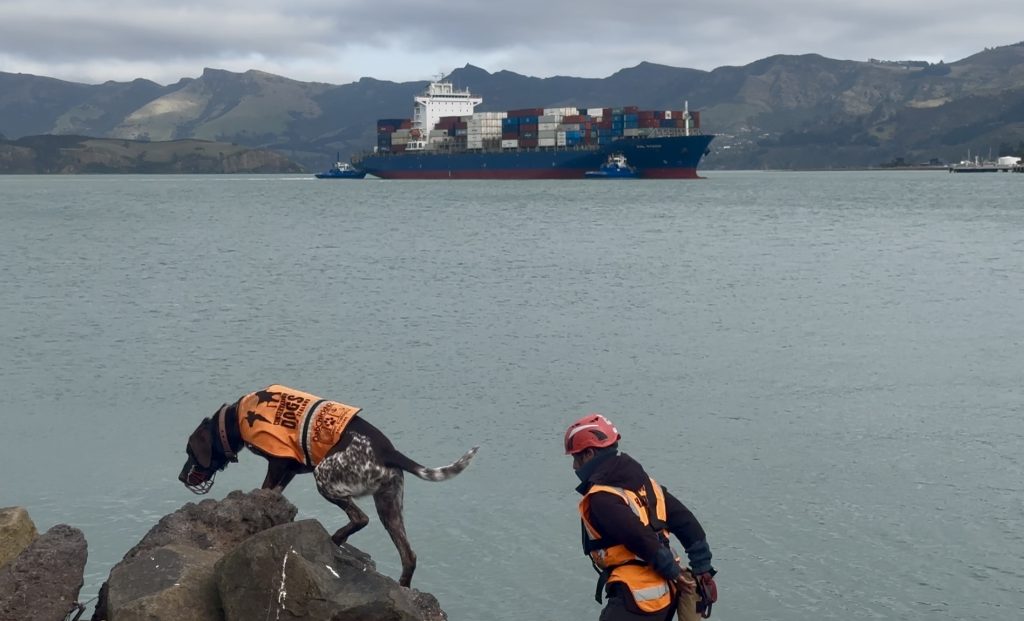Published Monday, 11 August 2025

Miro the penguin detection dog and handler Joanna Sim visited Lyttelton Port to locate possible penguin nesting sites.
The nesting season is starting for little penguins/kororā, found only in Canterbury, with penguins seeking safe burrows to lay eggs and rear chicks until January.
Joanna and Miro surveyed sites across Banks Peninsula, including Lyttelton, Camp Bay, and Oashore Bay Council Reserve.
The LPC Environment Team identified areas with past penguin nests, and Miro pinpointed penguins tucked away behind sea walls.
LPC Environmental and Sustainability Business Partner Kirsty Brennan says locating penguins is a real challenge without canine assistance.
“A dog can sniff out penguins in areas we can’t see, making a real difference in our ability to protect local wildlife,” says Kirsty.
“Detections by Miro included the breakwater and around Naval Point. We are also happy that a penguin has returned to a site near the Coal Yard.”
Uncontrolled dogs pose a serious threat to penguins, potentially disturbing nesting sites or harming vulnerable birds and chicks.
LPC Environment and Sustainability Advisor Charlotte Jones says that ports can be safe environments for penguins as they are generally free from public access and the threat of dogs and cats.
“At Lyttelton, we have a predator control programme to manage threats to penguins, and our Coal team are very hands on with clearing traps and enhancing penguin habitat,” says Charlotte.
The penguin detections are crucial for conservation efforts and ensuring positive outcomes for biodiversity.